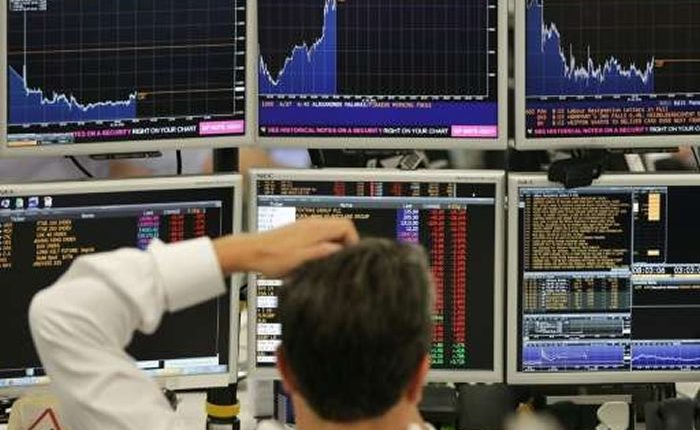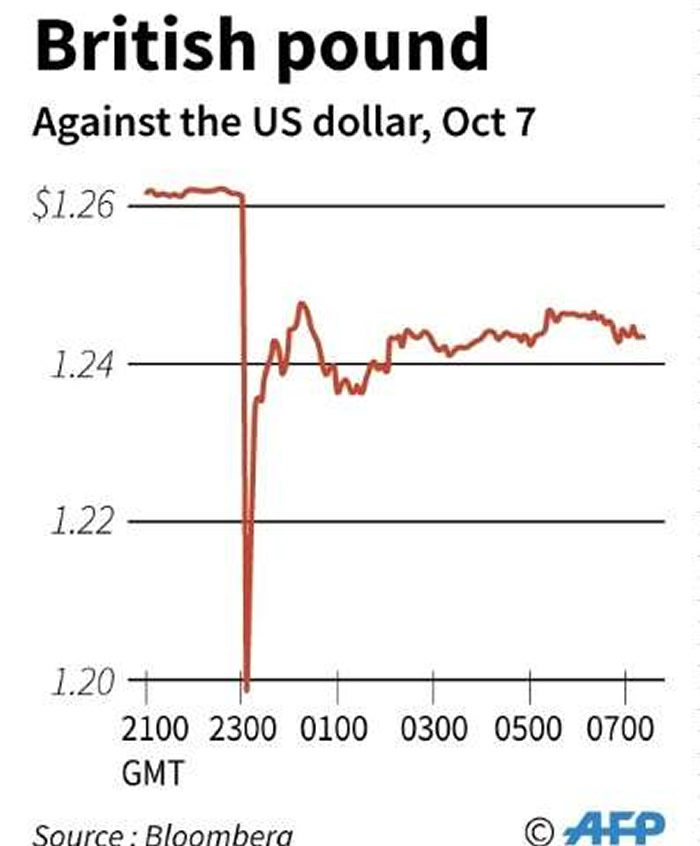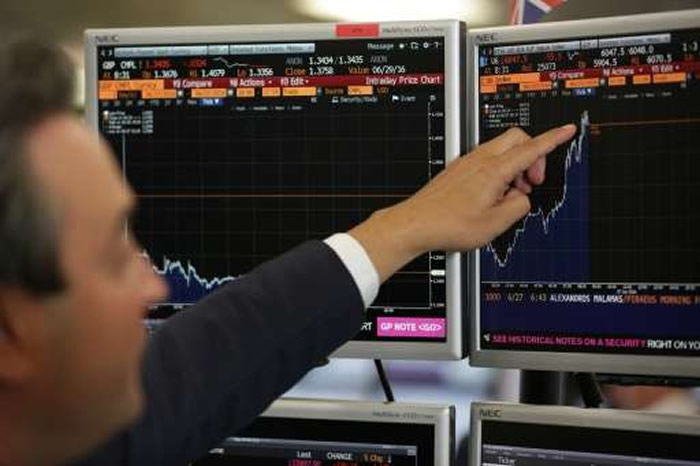Algorithmically challenged computers cause of sterling plunge?
When the British pound fell off a cliff on Friday morning, it soon became clear what may have been responsible—the computers.
Sterling plunged more than 6% in a matter of minutes, a flash crash that sent shockwaves throughout the financial world.
In years gone by, that kind of drop would have been the result of a major news event—a disaster or a political earthquake—or a monumental human error, the proverbial fat finger.
But in today’s tech-dominated world, it probably had a lot more to do with complex mathematical equations known as algorithms.
Trading floors
With old school trading floors ancient history these days, investors—particularly big institutional players with millions or billions to invest—often depend on computers to pick winners.
Automated trading systems can be set up to keep an eye on news headlines and react to potentially market-moving information.
Facts are collected, analyzed and a computer-generated decision is made based on an investor’s pre-set wishes.
If a price moves to a pre-determined level, the computer starts selling, driving the price down as all the other algorithms join in.
The selling continues until the price hits the preconfigured “buy” level, and the computers reverse course and send the price back up.
These algorithms mean currencies and stocks can be bought and sold at specific prices in a matter of seconds, all without human intervention.
Algorithm-based trading tends to save on labour costs and takes human emotion out of the investing equation. They can also analyse vast amounts of information far quicker than humans.
But algorithms aren’t perfect and they don’t always get it right. Sometimes they over- or under-react to events. ‘Perfect storm’ That may have been what happened with the pound during early morning Asian trading hours when New York investors were getting ready to turn in and their Tokyo colleagues were about to start a new day.
Thousands of kilometres (miles) away, French President Francois Hollande was calling for tough negotiations with Britain over its European Union exit.
They were relatively underwhelming comments, but the machines reacted. And with not much trading volume at that time, the reaction was an outsized “perfect storm”, analysts said.
The pound dropped to a fresh 31-year low of $1.1841 before rebounding rapidly to around $1.2450.
The pound’s plunge “unfortunately, occurred in the ‘twilight’ zone between the New York close and the start of Asia at a time when liquidity is always at a premium”, Jeffrey Halley, senior market analyst at forex firm OANDA, wrote in a commentary.
The currency “quickly dropped in a matter of minutes on algorithmic driven selling”.
The Financial Times—among the first to report Hollande’s comments—said the computers might have been reading its website.
“Many algorithmic traders include tracking news websites in their systems. The FT story was first published the same minute as the move lower began,” the paper said.
More information: Phys.org




Comments are closed, but trackbacks and pingbacks are open.